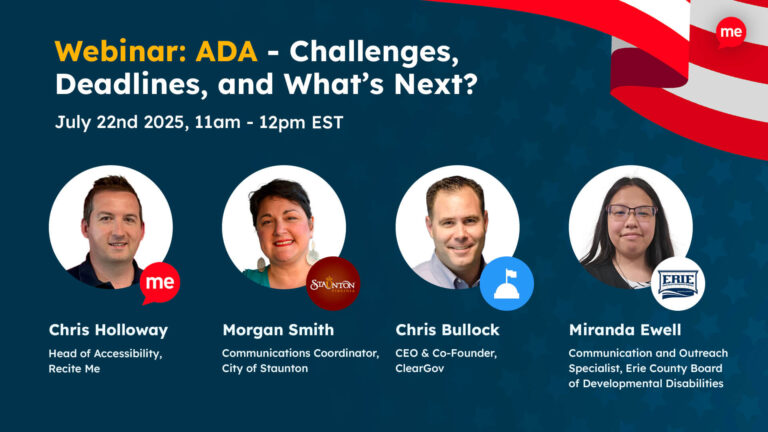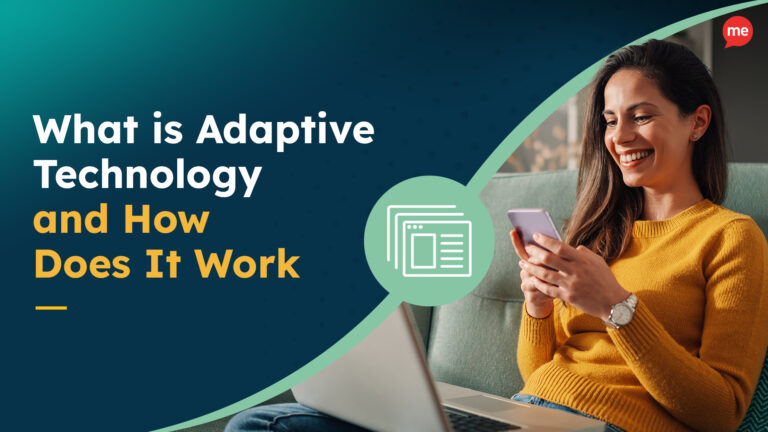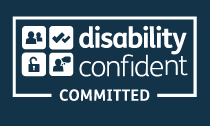Get A Free ADA Compliance Audit Of Your Website
Download NowAlabama has always been one of the more progressive states with regard to protecting the rights and interests of its disabled citizens. Ever since the Handicapped Persons Code was introduced in the 1970s, visually impaired and physically disabled residents have been provided – at least in theory – with equal access to state services, facilities, and information.
However, more specific guidance was required in the digital age to ensure equitable access for individuals who face online access barriers. Again, Alabama was one of the first states to implement stand-alone guidance to support those with disabilities.
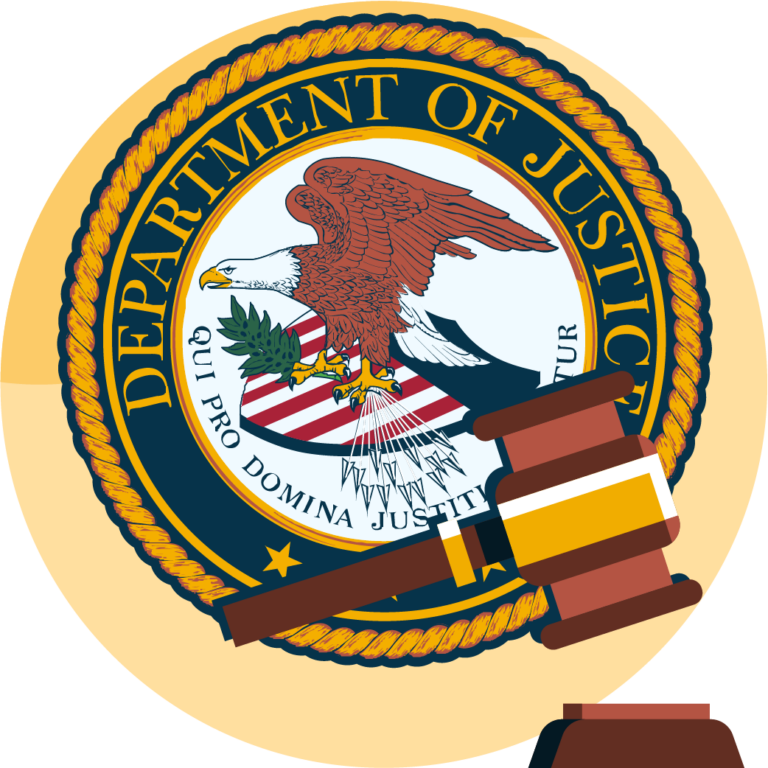
Web Accessibility Laws in Alabama
Having undergone several iterations, the Code of Alabama (Title 21 – Handicapped Persons) still exists today in its updated form. However, additional state and federal legislation is now more relevant in mandating digital accessibility for disabled individuals.
Information Technology Standard 530S2-00: Universal Accessibility (ITS-530S2)
Alabama’s Information Technology Standard applies to all executive branch agencies, boards, and commissions – particularly those with alabama.gov or state.al.us domains. Designed to provide guidance on minimum web accessibility requirements and aid compliance with Section 508, the standard lists several critical requirements for helping developers build websites that are universally accessible:
- All functional images and navigation icons must have alternative text (alt text).
- Decorative graphics should have an <empty> alt tag.
- Alternative text should be provided for every graphic element that uses an image map.
- Alt text links must have descriptive, intuitive anchor text.
- Inaccessible forms should provide alternative means of access, such as an email or phone number.
- Frames are not permitted because they are inaccessible to screen readers, create navigation problems, and are not supported by all browsers.
- Accessibility testing must be conducted across multiple browsers.
The Americans With Disabilities Act
Like all US states, Alabama requires state and private businesses to adhere to the Americans with Disabilities Act (ADA) to ensure accessibility in digital spaces. Enacted in 1990 and updated over the years to account for digital in addition to physical spaces, the ADA prohibits discrimination against individuals with disabilities. It mandates accessibility standards under five titles, three of which relate specifically to digital accessibility:
- ADA Title I provides criteria for accessibility related to federal employment.
- ADA Title II mandates the accessibility of state and local government services and programs.
- ADA Title III applies to any public-facing entity, requiring full and equal online access to goods, services, facilities, privileges, etc.

Section 508 of the Rehabilitation Act
Section 508 of the Rehabilitation Act of 1973 requires state entities to ensure electronic and information technology (EIT) is accessible to individuals with disabilities. The list of digital assets covered includes, but is not limited to:
- Websites
- Hardware
- Software
- Documents
- Learning materials
The two primary goals of Section 508 are to ensure that federal employees with disabilities have equitable access to information and data, and that members of the public seeking federal information or services can access the resources they need.
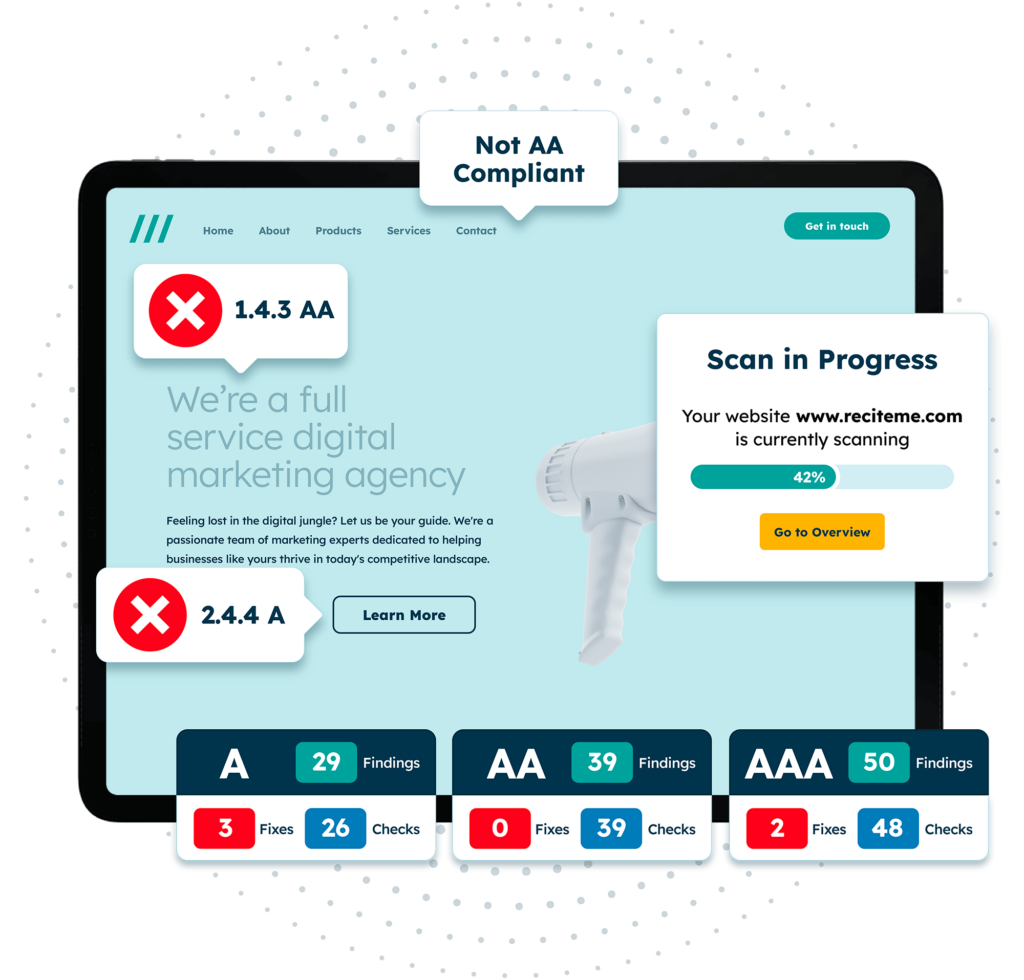
Free Accessibility Check of your Website
Finding accessibility issues is now easier than ever. Recite Me offers a free automated scan of your website’s homepage to highlight non-compliance. You’ll get recommendations on how to fix them, helping to improve your accessibility score.
What Types of Business Are Affected By Alabama’s Web Accessibility Legislation?
Alabama’s Information Technology Standard, Section 508, and Titles I and II of the ADA apply primarily to state entities. However, private businesses can be affected under ADA Title III – which are the most commonly-cited violations in web accessibility lawsuits.

However, it’s essential to note that private businesses may also be affected by Section 508 because the guidelines apply to all organizations involved in state entity supply chains. That means a wide variety of contractors and funding recipients must also comply. This includes:
- Direct and indirect subcontractors providing services spanning technology, software, telecommunications, construction, engineering, etc.
- Non-profit grant recipients like charities, conservation groups, research institutions, and community development organizations.
- For-profit businesses receiving federal funding across sectors like healthcare, finance, education, transport, etc.
What are The Risks and Consequences of Non-Compliance?
Failing to comply with Alabama web accessibility legislation may result in fines, legal action, and various other economic repercussions:
- ADA and Section 508 breaches carry fines of $55,000 for the first violation, rising to $110,000 for each subsequent violation.
- The cost of lawsuits can run into millions of dollars once legal fees and settlement sums have been accounted for.
- Grant and funding recipients may have their contracts revoked and be placed under increased regulatory scrutiny moving forward.
- The negative PR associated with treating individuals with disabilities less favorably can result in a significant drop in revenue, market share, and stakeholder share value.
Notable Digital Accessibility Lawsuits in Alabama
Having established that both state and government organizations can be affected, let’s examine a notable example of each type of case that has been filed through the Alabama courts.

Legal Proceedings Against the State
Plaintiff: National Federation of the Blind (NFB) of Alabama
Defendants: Tuscaloosa, Mobile, and Jefferson counties
In October 2023, a group of blind voters sought the assistance of the NFB to file a lawsuit against the state, citing an inaccessible absentee voting system. The plaintiffs argued that by being forced to seek assistance, the ability to vote privately was not available to voters with vision impairments related to reading print.
Final details and resolutions are not available for disclosure at this point, as the case is still ongoing.
Legal Proceedings Against Private Entities
Plaintiff: Hope Elly
Defendants: The Southern Grind
Elly filed under ADA Title III, arguing that the hotel, restaurant, and leisure company failed to integrate alternative platforms enabling physically disabled individuals to navigate and select items on the page. Several breaches of teh ADA were cited as examples of failure to design and construct facilities for ADA compliance:
- Denial of full and equal enjoyment of the website.
- Failure to provide mobile application accessibility.
- Architectural barriers.
- Insufficient practices, procedures, and policies.
Elly requested that all required digital accessibility upgrades be made and that the court award reasonable attorney’s fees, costs, and other plaintiff expenses related to the suit. Full details on the outcome and final settlement terms are currently unavailable.
Stay ahead of the game when it comes to Digital Accessibility laws and compliance in the United States. Learn about all the different federal and state-level regulations, see real examples of web accessibility lawsuits in different regions and discover a 7-step action plan for building accessible websites.
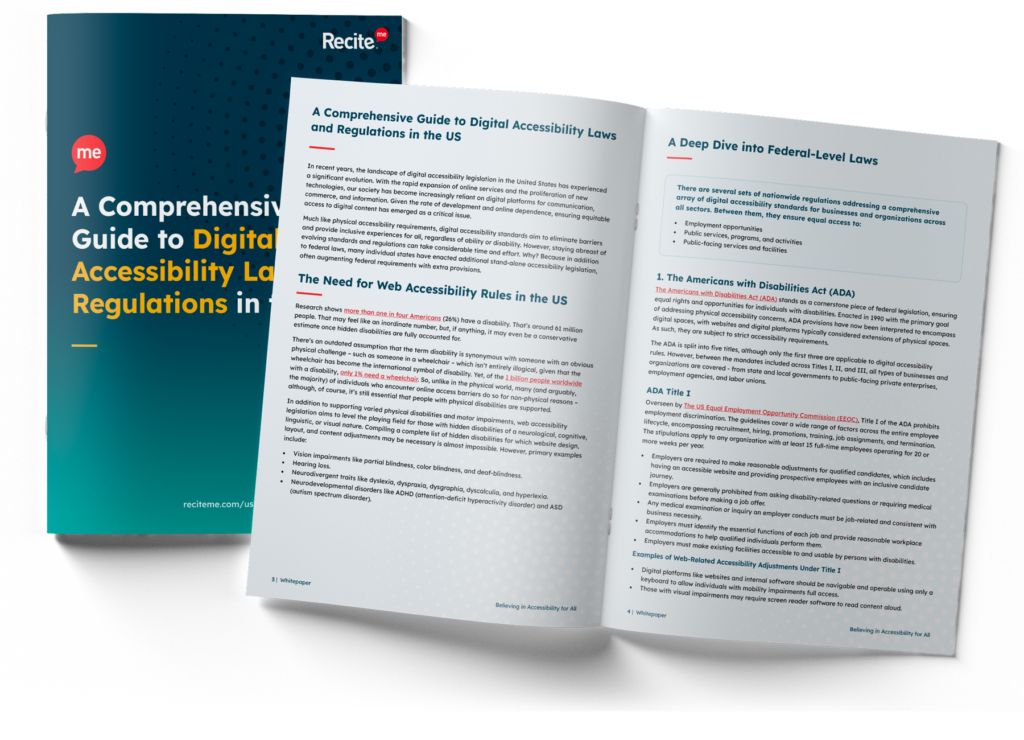
The Importance of WCAG Compliance
All state and federal web accessibility legislation in Alabama is based on Web Content Accessibility Guidelines (WCAG). Developed by the World Wide Web Consortium (W3C), WCAG is the internationally recognized gold standard of digital accessibility best practices.
There have been several iterations since the first WGAC standards were published in 1999. The most current version is WCAG 2.2, with Level AA being the typical standard required for making a website accessible:
- Level A – Basic accessibility – 30 criteria.
- Level AA – Industry-accepted accessibility – 50 criteria.
- Level AAA – Advanced accessibility – 78 criteria.
Under Alabama web accessibility laws, organizations are currently only required to meet WCAG 2.1 Level AA compliance. However, to avoid unnecessary risk, compliance with the most up-to-date guidelines (WCAG 2.2) is recommended – especially as a new standard of website accessibility is on the way soon, with WCAG 3.0 release expected in the near future.
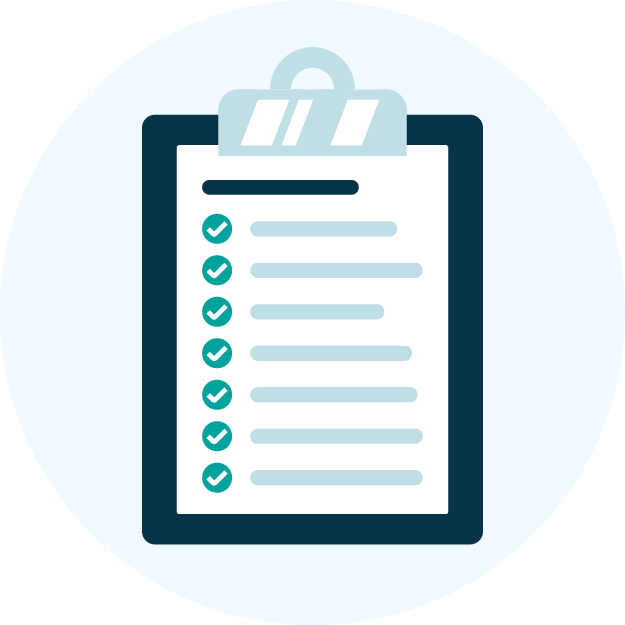
How To Make Your Website Compliant with Recite Me
To assist organizations in meeting their digital accessibility goals, Recite Me has developed a suite of accessibility-on-demand tools with both compliance and usability at their core.
The Recite Me Accessibility Checker
The Recite Me Accessibility Checker streamlines the compliance process by running 396 separate scans in line with WCAG standards. Non-compliant issues are identified and automatically routed into a fix queue that prioritizes Level A, AA, and AAA amendments in the correct order.
Schedule a free demonstration or run a free scan today to kickstart your compliance journey.
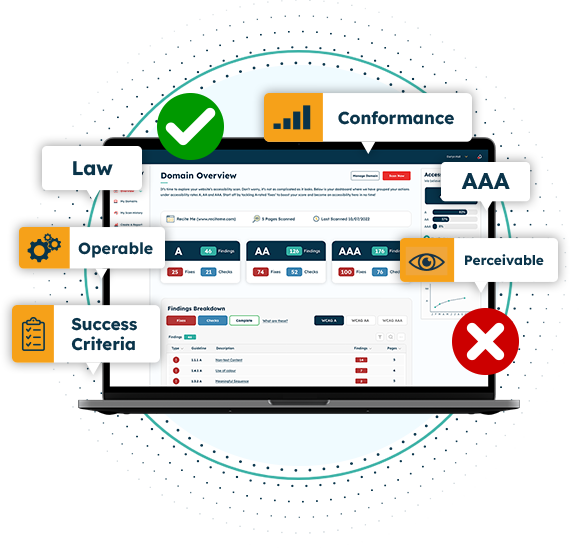

The Recite Me Toolbar
Compliance is crucial, but so is inclusivity. The Recite Me Toolbar empowers individuals with disabilities to customize their browsing experience in line with their unique needs by altering:
- Font size, type, and color
- Color contrasts
- Display language And more
Schedule a free demonstration, or try the toolbar today!
The Recite Me Accessibility Statement Generator
It’s recommended that all organizations take the proactive step of displaying an accessibility statement on their website. Recite Me’s Free Accessibility Statement Generator simplifies this task by generating a personalized accessibility statement within seconds.

